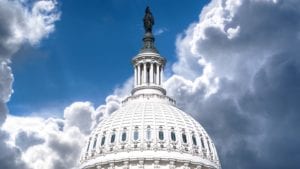““Halbig is definitely a defeat to the administration.
The administration basically has two options. First, it can seek an “en banc” hearing, which is when the court as a whole will hear the case, as opposed to just a panel of three judges. En banc hearings, while they do occur, aren’t common.
But, in a high stakes case like this, I’d estimate the chances are more likely that the court will agree to hear it en banc.
The second option the administration has is to file a petition for a writ of certiorari at the Supreme Court. Generally, though, the Supreme Court waits to have a couple cases on the issue, and then seeks to resolve a split or disagreement.
Just a few hours after the DC Circuit issued its opinion, the Fourth Circuit issued its opinion in King, which reached the exact opposite conclusion. Thus, there is now a circuit split (assuming the administration bypasses the en banc process). With the circuit split, I’d say the odds are good that we will see another ACA showdown at the Supreme Court, this time about the subsidies.
If the DC Circuit decision stands, it will be a devastating blow to the ACA. A central aspect of the ACA was the federal subsidies to entice the millions of people to sign up, which is supposed to make the law financially feasible. Without these federal subsidies, people in the dozens of states that have not yet instituted a state exchange will have to pay full price and would therefore be less likely to sign up, everything else being equal.
In terms of the merits of the cases, to me, Halbig, although the minority position now, is a more consistent decision. King and the other decisions square only if the word “State” is ambiguous in the ACA: it isn’t — the word “State” means exactly that, it does not mean the federal government.
In statutory construction, there’s a doctrine called “Casus Omissus Pro Omisso Habendus Est,” which means that if Congress makes a mistake in a statute, the duty to fix it lies with Congress, not the courts. I think that doctrine applies here.
If the administration wants to allow subsidies in states that don’t have a state-created exchange, then it needs to work with Congress and amend the ACA.
If this goes to the Supreme Court, which it likely will, based on the NFIB decision, I think the Roberts Court would go to great lengths to uphold the subsidies, like it stretched to uphold the ACA as a tax a few years ago.” — Timothy M. Todd, Esq., CPA, Assistant Professor of Law, Liberty University School of Law
Todd’s opinions are his own and do not reflect the position of Liberty University.







